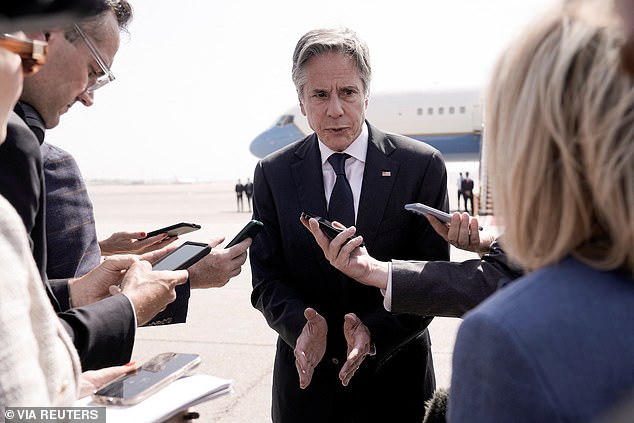Secretary of State Antony Blinken told his counterparts from G7 countries that Iran and Hezbollah could begin attacking Israel as early as Monday.
Israel has braced for a five-pronged Iranian attack “at any time” in revenge for the killing on Wednesday of Ismail Haniyeh, the leader of the Palestinian Islamist group Hamas, in Tehran, a day after an Israeli strike in Beirut killed Fuad Shukr, a senior military commander of the Lebanese group Hezbollah.
Tehran is in shock after it emerged that the terror chief was killed by a bomb smuggled into the regime’s official guesthouse in the capital months ago.
Supreme Leader Ali Khamenei has ordered the Islamic Republic’s Supreme National Security Council to launch a direct attack on Israel.
Joe Biden will convene his national security team in the situation room on Monday to discuss developments in the Middle East, the White House said, adding that he would also speak with Jordan’s King Abdullah.
Secretary of State Antony Blinken told his counterparts from the G7 countries that Iran and Hezbollah could begin attacking Israel as early as Monday.
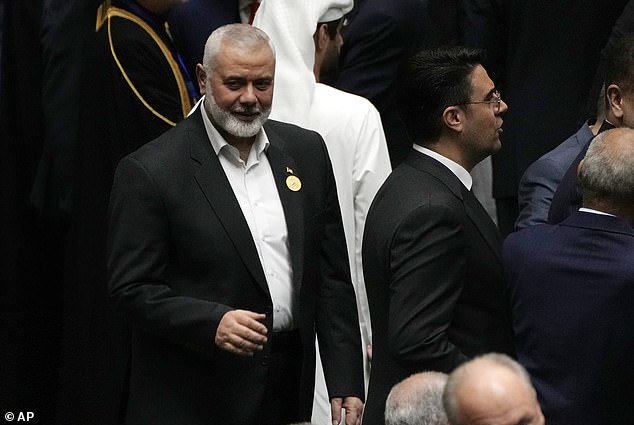
Hamas chief Ismail Haniyeh pictured in Iran on Tuesday hours before his death
Sources familiar with the call said it was unclear how Iran and Hezbollah would strike and they did not know the exact timing.
Asked about the report, the State Department referred to a readout of the call, where it said the ministers discussed “the urgent need to de-escalate the situation in the Middle East.”
The Pentagon said Friday it would deploy additional Navy warships and fighter jets to the region.
“The overall goal is to lower the temperature in the region, to deter and defend against such attacks and to avoid a regional conflict,” Jonathan Finer, deputy national security adviser to the White House, said on CBS’s “Face the Nation.”
The United States and Israel are preparing for any possibility, Finer added.
There are fears the response could eclipse Iran’s ferocious attack in April, when hundreds of ballistic missiles, drones and cruise missiles came terrifyingly close to overwhelming Israel’s defenses.
In that assault, RAF fighter jets were in Cyprus defending Israeli skies, but defence sources said last night that British bases were not in a “higher state of readiness” and no additional aircraft had been deployed.
The United States wants to be prepared if that situation were to happen again, Finer added.
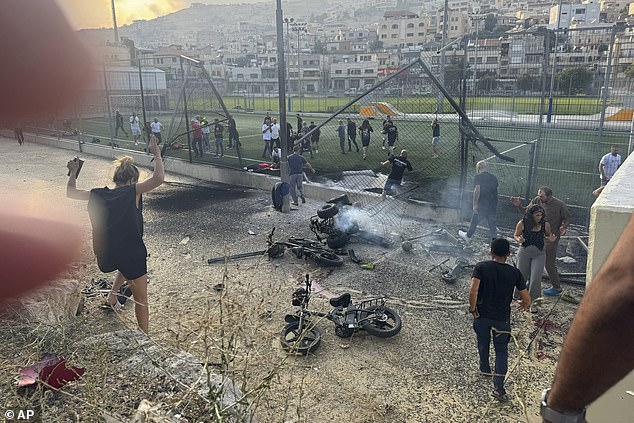
In late July, Israel vowed to “hit the enemy hard” after rocket fire from Lebanon killed 12 children in the Golan Heights region, sparking fears the war could spread across the Middle East as the United States issued desperate appeals for calm.
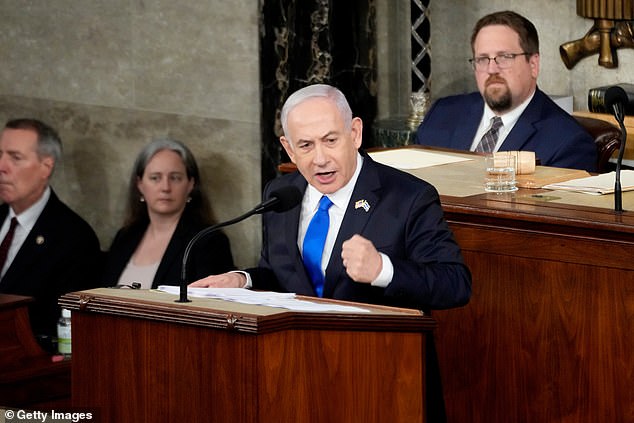
Israeli Prime Minister Benjamin Netanyahu
In a call with his Israeli counterpart, the Pentagon said U.S. Defense Secretary Lloyd Austin reiterated U.S. support for Israel’s security and its “right to self-defense against threats from Iran, Lebanese Hezbollah (Hezbollah), the Houthis, and other Iranian-backed terrorist groups.”
Blinken spoke with Iraqi Prime Minister Mohammed Shia al-Sudani on Sunday and stressed “the importance of all parties taking steps to calm regional tensions, prevent further escalation, and promote stability,” the State Department said.
There are growing fears that Israel’s war against Palestinian militants in Gaza, which began last October after attacks on the Jewish state, could escalate into a wider Middle East conflict.
Iran and Hamas have blamed Israel for Haniyeh’s killing in the Iranian capital and, along with Hezbollah, have vowed revenge. Israel has neither claimed nor denied responsibility.
Hamas political chief Ismail Haniyeh was assassinated in his sleep at 2 a.m. on Wednesday after visiting Tehran for the presidential inauguration.
He was staying in a regime guesthouse and was protected by the Islamic Revolutionary Guard in part of the Neshat complex in the north of the city.
Two months earlier, senior Middle Eastern officials told the New York Times, a bomb had been smuggled into the building. The bomb was detonated remotely once it was confirmed that the man was in his room. The massive explosion also killed his bodyguard.
Although Israel has not claimed responsibility, this is the fourth high-profile Hamas leader to be killed since October 7 and is said to be ticking off a “kill list”.
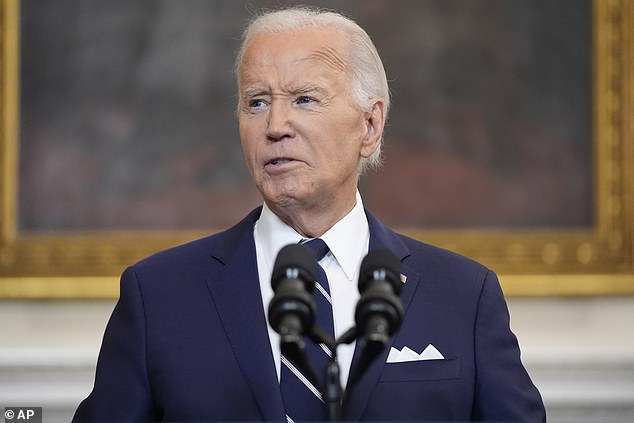
US President Joe Biden has said the killing of Hamas chief Ismail Haniyeh “does not help” talks on a possible ceasefire in Gaza
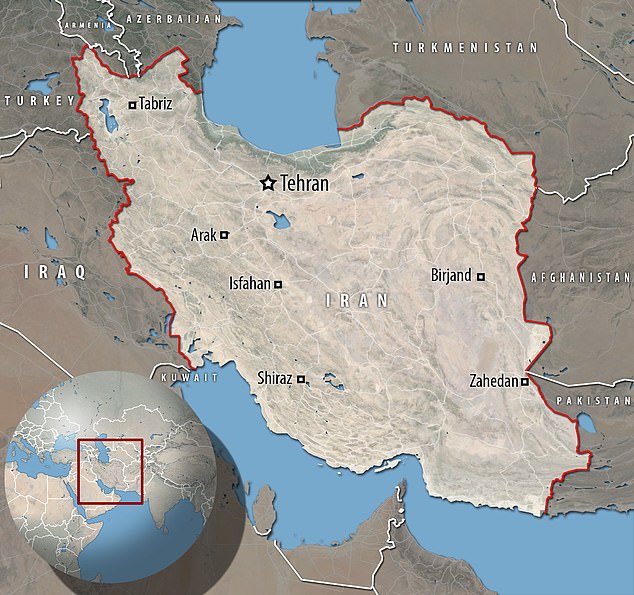
The Israel Defense Forces seized the opportunity to target Haniyeh, carrying out a daring missile attack on his residence in Tehran just hours after the incident, killing the Hamas leader and a security guard.
Just 12 hours before Haniyeh’s death, Israel killed Fuad Shukr, the military leader of Hezbollah, another Iranian proxy in Lebanon.
Hassan Nasrallah, Hezbollah’s secretary general, last night vowed revenge, saying Israel had “crossed a red line.”
He said: “There is no argument on this point. The only thing that stands between us and you are the days, the nights and the battlefield.”
Prime Minister Benjamin Netanyahu said Israel was prepared for any “aggression.” The statement came as crowds waving Palestinian flags filled the streets of Tehran yesterday for Haniyeh’s funeral.
Meanwhile, 70,000 Israelis rushed to Tel Aviv airport to try to leave as tensions in the country rise.
Israel’s National Security Council is warning travelers to exercise extra caution abroad over fears that Jewish institutions could be targeted by Iran-allied militants.
Joe Biden said Friday that Haniyeh’s assassination “does not help ceasefire talks” between Israel and Hamas.
Biden said he was “very concerned” about rising tensions in the Middle East, adding: “We have the basis for a ceasefire. He (Israeli Prime Minister Benjamin Netanyahu) should move forward on it and they (Hamas) should move forward on it now.”
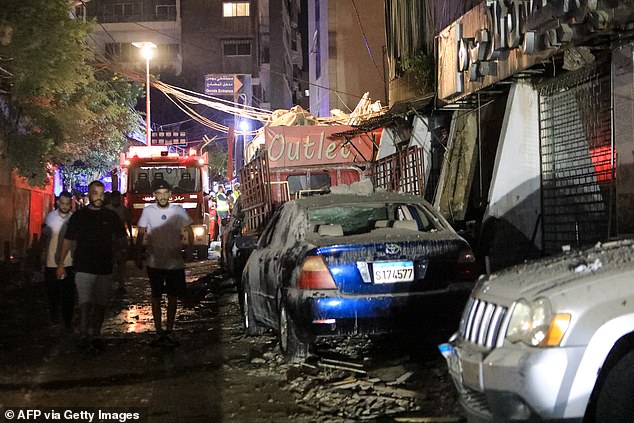
Haniyeh’s killing in Tehran came hours after Israel also targeted a senior Hezbollah official in Beirut.
The latest bloodshed in the decades-long Israeli-Palestinian conflict erupted on Oct. 7 when the Palestinian Islamist group Hamas attacked Israel, killing 1,200 people and taking about 250 hostages, according to Israeli counts.
Although Biden had hoped to achieve a ceasefire, violence in the region has increased again in recent weeks.
In late July, Israel vowed to “hit the enemy hard” after rocket fire from Lebanon killed 12 children in the Golan Heights region, sparking fears the war could spread across the Middle East as the United States issued desperate appeals for calm.
A dozen people aged between 10 and 16 were killed and at least 37 injured in explosions at a football pitch, sparking outrage in Israel as authorities blamed the Lebanese Hezbollah movement for firing an Iranian Falaq-1 rocket.
The incident, described by Tel Aviv as a “massacre” and “the deadliest attack on Israeli civilians” since October 7, prompted Israel to respond with a wave of drone strikes in Lebanon last night, ahead of what many fear will be a larger and deadlier retaliation.
Iran-backed Hezbollah, which regularly attacks Israeli military positions, denied responsibility, but the United States also determined Sunday that the deaths were caused by a rocket fired from Lebanon.
In its 10-month campaign of bombings and offensives in Gaza, Israel has killed some 39,480 Palestinians and wounded more than 91,100, according to the Gaza Health Ministry, whose tally does not differentiate between civilians and combatants.
More than 80% of the 2.3 million people have been driven from their homes, the vast majority crammed into tent camps in the far southwest of the territory, with limited food and water.

